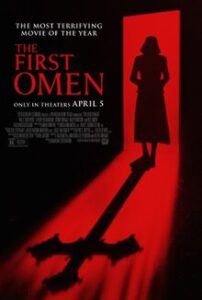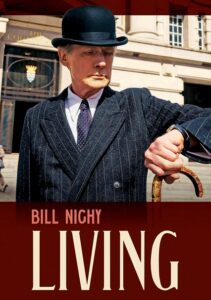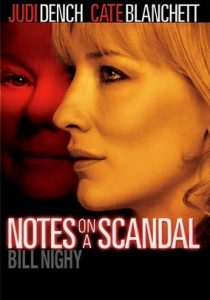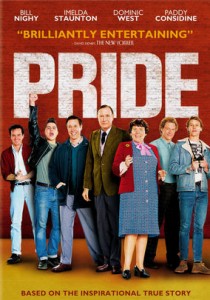The First Omen-2024
Director Arkasha Stevenson
Starring Nell Tiger Free, Ralph Ineson, Bill Nighy
Scott’s Review #1,441
Reviewed September 26, 2024
Grade: B
Having six and a half hours to kill on a late-night international flight to Europe, I eagerly desired some good horror to pass the time. What better way to while away the minutes than some religious treachery?
In truth, I accidentally thought The First Omen (2024) selection was the recent The Exorcist: Believer from 2023. Further, I thought the film was a solid ninety minutes, but I was wrong again. The running time is an unwieldy one hundred and nineteen minutes, a lifetime for a horror film.
So, The First Omen had much going against it before I was even ten seconds into the film.
While not a great film, primarily due to a corny and far-fetched story, The First Omen is memorable for its moments and the stylistic approach to camerawork.
I love watching films by first-time directors partly because they may become the next Quentin Tarantino, Alfred Hitchcock, or Greta Gerwig. Sometimes a blueprint is served up for what’s to follow in said directors career.
Arkasha Stevenson must have studied films by Italian horror director Dario Argento, the devilish late 1960s horror classic Rosemary’s Baby, or both.
The film has a gothic look, and it was shot on location in Rome, providing authenticity. What better backdrop than the city the Roman Catholic Church is most associated with?
The costumes are excellent, specifically the clothes worn by the nuns. They represent the 1940s or the 1950s even though the film is set during the 1970s, and somehow this works.
For fans of the classic The Omen from 1976, The First Omen serves as a prequel with a couple of satisfying tie-ins to that great film. I can think of two examples incorporated simply because the filmmakers wanted to please moviegoers watching this film because of the original.
There were sequels made in 1978, 1980, 1982, and 1985, but those must be forgotten entirely.
When a young American woman named Margaret (Nell Tiger Free) is sent to Rome to work at an orphanage before she begins a life of service to the church, she encounters a darkness that causes her to question her faith.
Along with the kindly Father Brennan (Ralph Ineson), she uncovers a terrifying conspiracy that hopes to bring about the birth of evil incarnate.
You see, Brennan explains that radicals within the church, desperate to regain power against the rise of secularism, seek to bring about the Antichrist to create fear and drive people back to the church, with a young orphan named Carlita (Nicole Sorace) intended to be his mother.
There is little need not to reveal that the Antichrist is Damien, the little boy adopted in The Omen (1976) who wreaks havoc.
The standout moments are pretty good. One day, Margaret spots Carlita showing a nun named Anjelica a drawing of a pregnant woman being restrained; moments later, Anjelica self-immolates and hangs herself after she proclaims, ‘It’s all for you.’
This moment is a fantastic ode to a similar scene in The Omen, and I nearly got goosebumps recalling that epic, frightening sequence.
There’s another where Margaret runs into Paolo, a man she may or may not have slept with, who tells her to “look for the mark” before being struck and cut in half by an oncoming truck.
The final climax, which mostly resembles Rosemary’s Baby, is so convoluted that I stopped trying to make sense of the story and instead appreciated the incredible visceral birthing scenes, which were controversial.
The film looks authentically like it’s from the 1970s, which is another win for Stevenson. It could easily be watched right before watching The Omen.
I’m intrigued by Stevenson’s direction and wonder what else she’ll do in the future.
The First Omen (2024) is a quality religious horror film sure to scare religious zealots and somewhat please fans. It’s not great, but it has enough going for it to deserve a watch.







